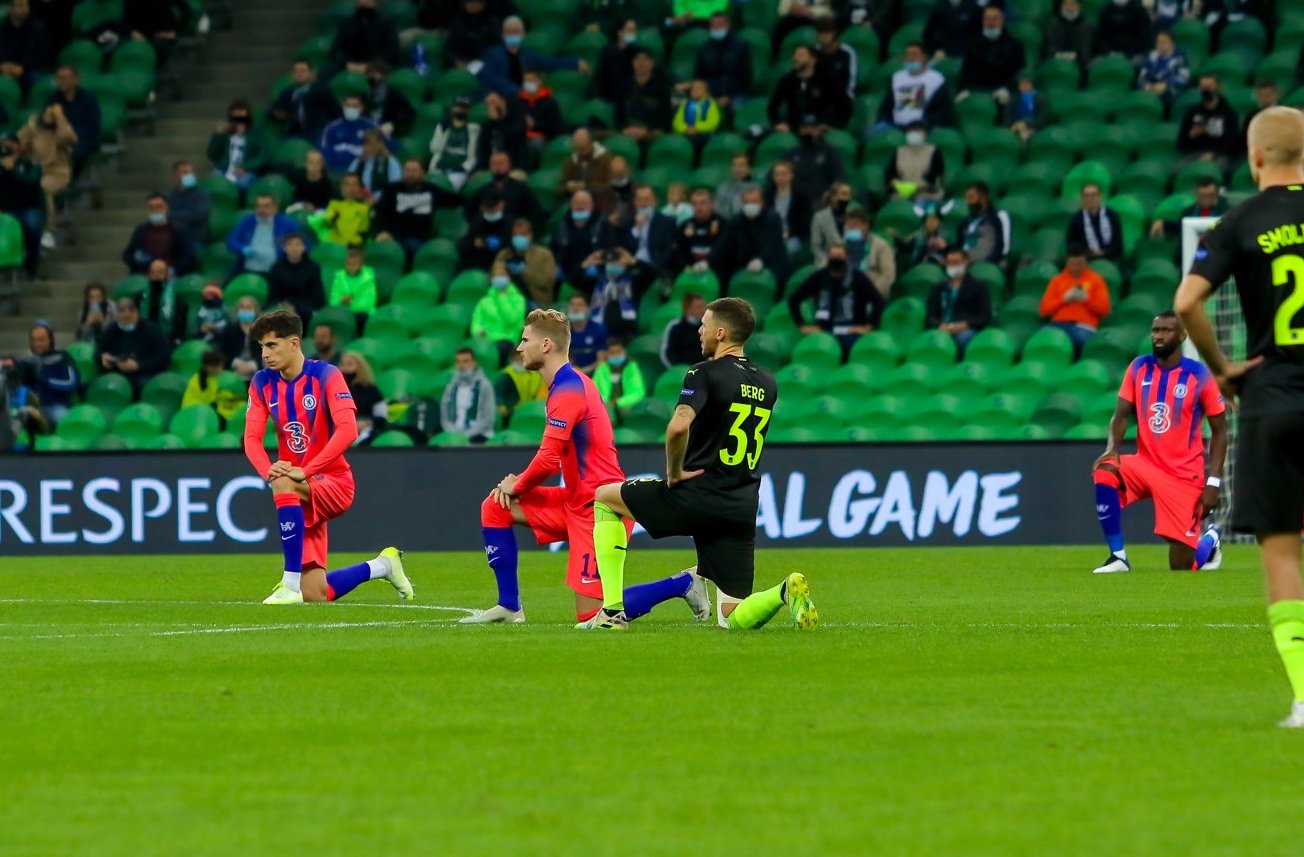It is increasingly uncomfortable to be a politically engaged sports fan. As big sport has become big business, more and more international events are moving to countries that have highly questionable human rights records.
I’m sure I’m not the only one whose usual enthusiasm for the men’s football World Cup was tempered by Russia’s hosting in 2018, or who felt unmotivated tuning into the 2022 Winter Olympics in Beijing following China’s recent actions in Xinjiang and Hong Kong.
In motor racing, Formula One’s willingness to follow the money means the race calendar includes a grand tour of wealthy but corrupt regimes.
Qatar’s hosting of the 2022 men’s football World Cup is just another sign of how sport has prioritised money over fair play off the field. Amnesty has highlighted the country’s human rights abuses of migrant workers, women and LGBTQ+ people, as well as its lamentable freedom of expression. The successful bid to host the tournament has been plagued by accusations of corruption, which – although unproven – seem to many observers to be strong.
Fans can easily choose to tune out or vent their objections. But what about the players? Should they be refusing to play, or at least making some kind of public protest?
In one sense, the answer is obviously yes. Anyone who participates in an event that helps give credibility and income to a corrupt regime becomes complicit. That does not mean it is always wrong to engage, but it does mean there are negative consequences which ought to be counteracted.
The most straightforward way of doing this is to counter the positive PR by speaking out. There’s a strong case that this is done more effectively by participating than not. Imagine, for instance, that one of the world’s best players, such as Argentina’s Lionel Messi or Poland’s Robert Lewandowski, refused to play in Qatar. That would put its human rights record in the global spotlight for a day or two. But if they went to the tournament and spoke out while they were there, the impact could be greater, and it would be more likely to get through to Qataris.
However, while we should rightly applaud any player who refuses to just kick the ball and shut up, I’m less convinced that we could reasonably expect them to do so. There is an important difference between actions which are morally required and others which are“supererogatory”, meaning they are laudable but optional.
But like most binaries, it is more helpful to think of a sliding scale.While some actions are absolutely required and others obviously optional, in between there are degrees of obligation. My contention is that the obligation for footballers to speak out or opt out on Qatar is weak, because we cannot reasonably expect them to be able and willing to take the most admirable moral stance.
First, think about what refusing to participate would mean for them. Professional footballers have short careers so they could be depriving themselves of the peak of their professional lives. Speaking out may come at less cost but they may still fear damaging their careers. Because the cost of action could be quite high, the obligation to take it has to be commensurably lower.
These are young men who travel the world and know enough to be aware that moral norms vary between nations. But should we expect them to be able to make carefully calibrated decisions about which countries are beyond the pale? It is easy to imagine them thinking, “Qatar may not be perfect, but compared with what the UK and the USA did in Iraq and Afghanistan, its crimes are minor.” That’s not a very sophisticated moral argument, of course, but many intellectuals defend more complex versions.
A player’s failure to reach the best all-things-considered judgement is no more blameworthy than the morally sub-optimal choices most “ordinary” people make. Many people buy meat and dairy sourced from animals kept in terrible conditions, goods made by Uyghurs in internment camps, go on holiday in countries with bad human rights records. When we say they shouldn’t do all these things, we are right. But we don’t judge them too harshly for doing so because we know that once you start thinking about what is ethical or not, it gets very complicated very quickly, and it is difficult to see the seriousness of an issue when the rest of society is behaving as though nothing is amiss.
There is also a risk that if we pressure players into speaking out and taking action on moral and political issues, we could actually end up with many choosing the wrong causes. Asking young, unintellectual, rich people to take on the role of society’s moral spokespeople is giving them a task they are ill-equipped to carry out.
In sport, the main responsibility for ensuring that regimes do not use “sportswashing” to gloss over their human rights abuses lies with those higher up the power command – people who are generally older, more experienced and with a better grasp of the wider situation. Fifa, world football’s governing body, should take into account the human rights situation in a country before awarding it a major tournament to host. National governing bodies should take clear public stands and ensure that if their teams are required to play in disreputable countries, there is no complicity with breaches of human rights. Team managers should be charged with communicating such views to the wider public.
The idea that sports people should be role models is overplayed. They should model good qualities such as fair play, dedication, teamwork and respect for opponents because those are the qualities that they can reasonably be expected to have. But to ask them to model statesmanship and political activism is like asking our elected politicians to be exemplars of good exercise regimes or artistic creativity.
This article appears in the autumn 2022 issue of Index on Censorship. To subscribe click here













